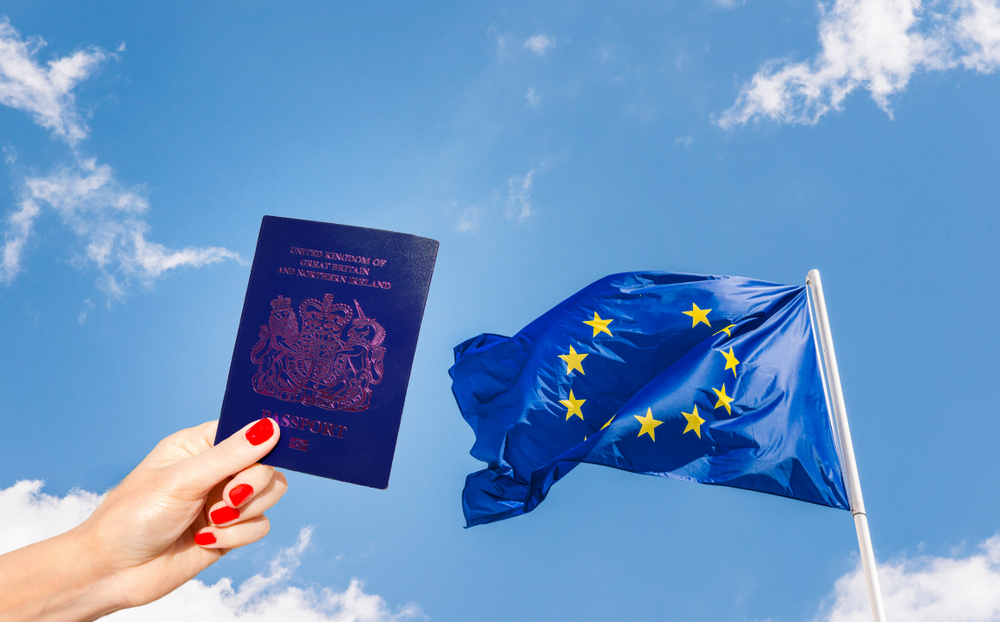The guidance forms the basis of a new ITM resource ‘Preparing for a Return of Business Travel to the EU’.
Business travel managers must act now to assess the potential impact of EU travel regulations such as the Posted Worker Directive and A1 certification on their business travellers, or face significant challenges when travel volumes return, according to the Institute of Travel Management’s (ITM) EU Taskforce. However, given the complexity involved, ITM is urging buyers not to attempt tackling these issues on their own. Instead, the Taskforce recommends buyers collaborate with HR, tax, legal and mobility teams across their business, as well as engage with third party specialists, to build effective processes within travel programmes.
The guidance forms the basis of a new ITM resource ‘Preparing for a Return of Business Travel to the EU’. It is the culmination of the EU Taskforce’s campaign, launched in June this year, to address buyer members’ concerns around understanding enforcement of EU rules for their business travellers entering and travelling within the EU.
The taskforce consists of nine key stakeholders including representatives from immigration and visa specialist Newland Chase; tax and social security consultants from Deloitte, and buyer members who had already begun exploring the potential increase in enforcement of existing EU regulations.
In addition to meeting regularly over the last three months, the taskforce also organised two webinars for ITM members. The first, delivered by Deloitte, was an introduction to A1 social security certificates and the amended Payment Workers Directive (PWD). The second webinar took the form of a panel discussion on both these topics, as well as Brexit considerations, with advice on how buyers can pursue relevant conversations internally in order to enable their organisations to establish appropriate protocols.
“With the post pandemic opening of business travel in the EU, many of the corporate compliance challenges that were put on hold over the last two years are likely to emerge. Our EU Travel Taskforce has done an impressive job over the last three months of raising awareness among ITM members of the three key issues that will impact on short term business travel, relating to social security, labour law and cross-border travel,” said Scott Davies, CEO ITM.
“However, these issues are also relevant to HR, tax, mobility and legal departments, but may not be on their radar yet because short-term business travel was previously relatively simple to organise and they didn’t need to be involved. There is a limited window for travel managers to get to grips with these challenges, socialise them with the appropriate stakeholders within their organisations and decide on what action needs to be taken.
“Hence, the taskforce has published a valuable resource ‘Preparing for a Return of Business Travel to the EU’ with advice and recommendations to help travel buyers tackle these topics. The guiding principle throughout the guide is that travel managers cannot take this task on alone. It will require close collaboration across the business and an executive sponsor and project team to implement.”
Regulatory requirements identified by the EU Travel Taskforce and recommended actions explored in the ITM guide include the following:
- Posted Worker Directive: PWD is driven by the activity the business traveller performs and can impact on very short-term business travel. Those short-term trips (for example a two-day trip to France) that trigger a PWD requirement mean that a pre-travel notification must be completed at least 24-hours in advance of travel. Whilst the task of completing a pre-travel notification is not difficult, the information required by Member State authorities can be extensive and requires input from traveller and business alike. This will present a challenge when travel returns at scale and may require a specialist automated solution.
- A1 certification: this certificate confirms where, under EU Regulations, the business traveller pays social security. A1 as a process is straightforward; however, at scale it becomes a challenge when travel volumes return. Certificates are issued by HMRC and the application process can be lengthy. Further challenges lie in how organisations instruct travellers and bookers on the requirement to complete A1 certificates for ad-hoc EU trips; as well as how to build the A1 process into current policy.
- Brexit Considerations: for business trips without a visa requirement, systems need to be put in place to monitor a traveller’s time in a host country (both business and personal) so as not to exceed 90 days in 180. Furthermore, the EU cannot be considered as a ‘bloc’ as rules can be country-specific.
Tatiana is the news coordinator for TravelDailyNews Media Network (traveldailynews.gr, traveldailynews.com and traveldailynews.asia). Her role includes monitoring the hundreds of news sources of TravelDailyNews Media Network and skimming the most important according to our strategy.
She holds a Bachelor's degree in Communication & Mass Media from Panteion University of Political & Social Studies of Athens and she has been editor and editor-in-chief in various economic magazines and newspapers.










































































































































































